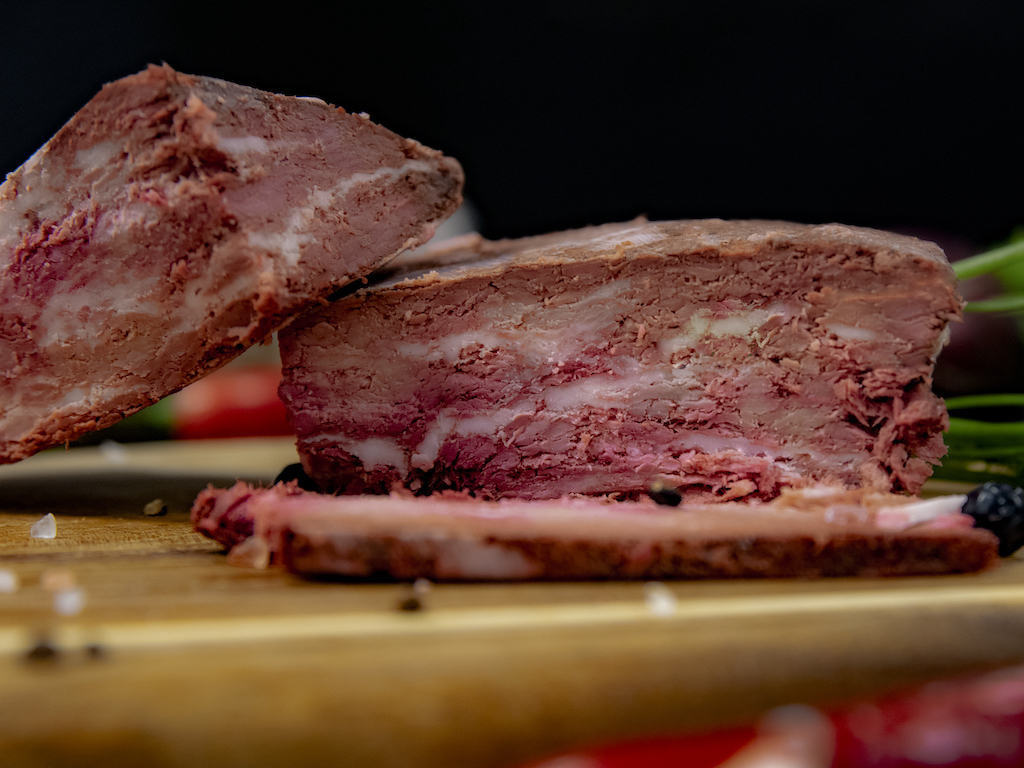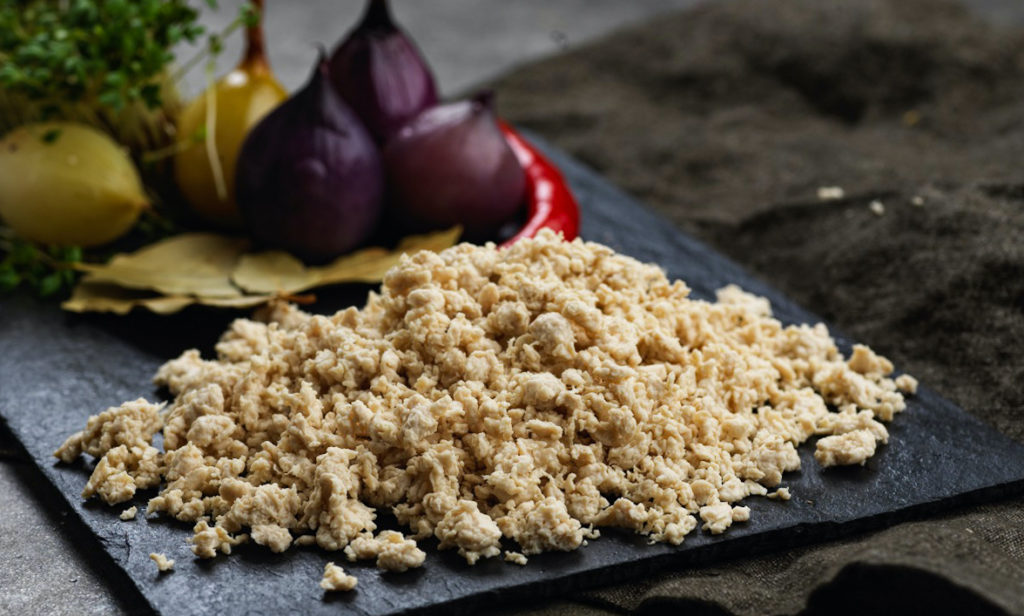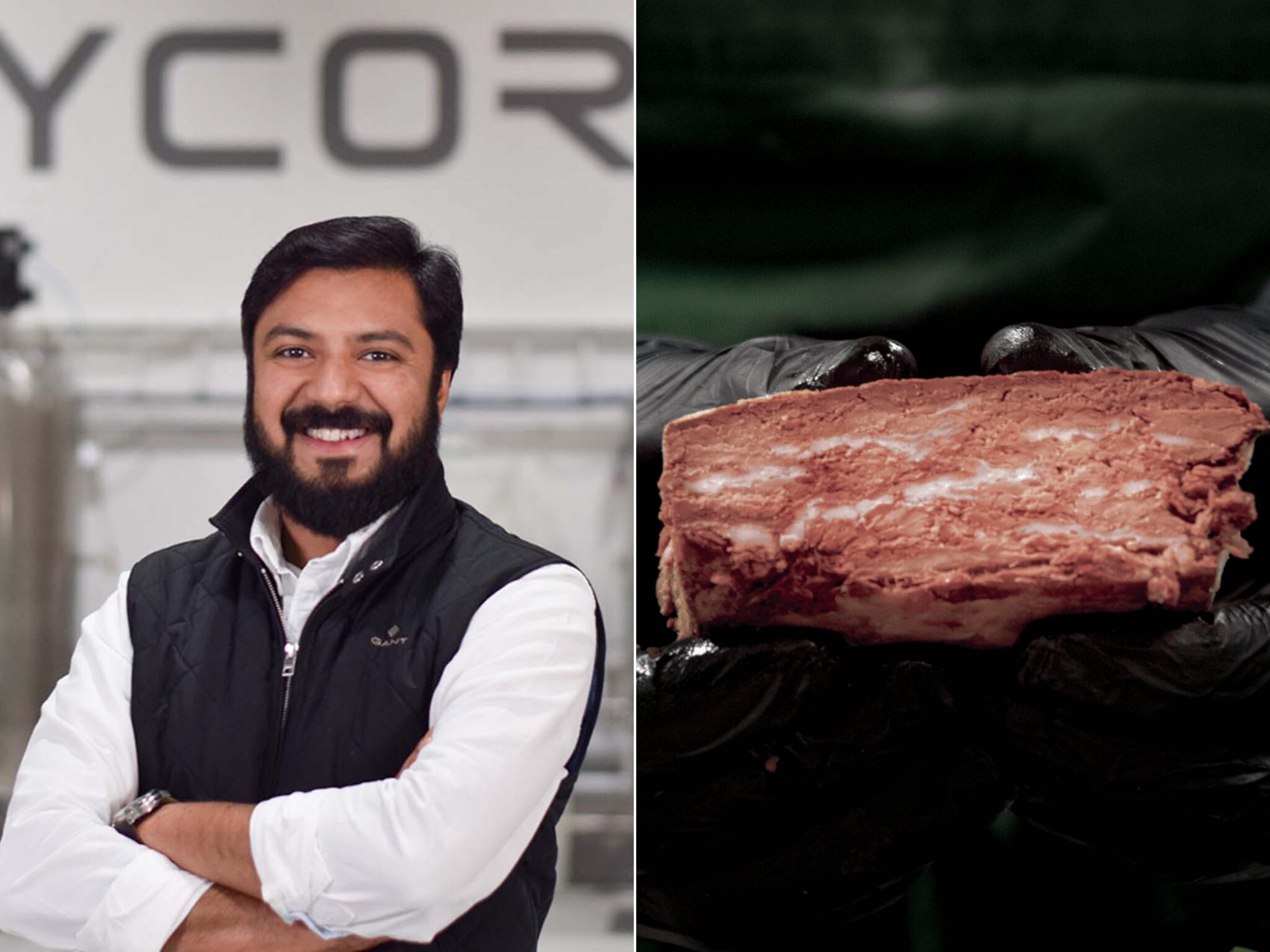Mycorena CEO on Filing for Bankruptcy: ‘It’s the Most Viable Path for A Clean Restart’
6 Mins Read
Swedish mycoprotein startup Mycorena has filed for bankruptcy following fundraising difficulties, but a consortium of its investors is aiming to reinstate the company, says its founder and CEO Ramkumar Nair.
On Saturday, Mycorena announced that it has filed for bankruptcy, citing “significant financial challenges”. The decision followed the mycoprotein producer’s unsuccessful attempts to raise capital for its Series B round, and came a month after it discontinued plans for a commercial-scale factory.
Mycorena, which sells fungi-based proteins and fats to food manufacturers, has been facing financial challenges for the last two years. “Our team has explored every possible avenue to save this pioneering company,” chairman Tore Sveälv after appointing law firm Advokatfirman Lindahl KB as trustee to administer the bankruptcy process.
However, all hope is not lost, as the company believes renewed investment can revive the brand. To do so, some of Mycorena’s former shareholders are now building a new consortium, and their ambition is to buy back the bankruptcy estate and reinstate the company’s operations, giving it a “fresh restart”, founder and CEO Ramkumar Nair tells Green Queen.
“We are also glad to see that many new investors also see a great opportunity to join that consortium now, with the possibility of them onboarding a fresh start for Mycorena, leveraging on all the value and learnings we have had for the past years,” adds Nair, who founded the company in 2017 based on his PhD research project.
Raising capital is a ‘catch-22’

To date, Mycorena has raised over €35M in equity funding, including what was at the time the largest Series A for a Nordic alternative protein startup. It currently operates a demonstration facility in Gothenburg, opened in 2021 and built on the success of Promyc, its flagship mycoprotein ingredient.
“Over the past 20 months, we have been actively fundraising to finalise our large-scale factory project, says Nair. “However, the investor appetite for large-scale capital-expenditure-driven projects within [the] alternative protein space has significantly diminished over the past few years.”
He calls fundraising in the current environment a “big catch-22”. “Investors would like to see strong binding offtake agreements before they sign up on a large capital expenditure project, whereas the partner companies that we were working with are reluctant to sign offtake contracts without seeing strong production capabilities,” he explains. “We tried to solve it for the last two years without any success.”
Nair adds: “Additionally, the slower-than-expected growth of the alternative protein market in Europe has compounded our challenges. Most of our partner companies have also decelerated their growth plans, further impacting our scale-up activities.”
It was with these hurdles that Mycorena decided to cancel its scale-up project and refocus on its demo facility, where it could produce and sell in small-scale volumes. “Despite this pivot, the accumulated challenges of the past two years have left us with limited options,” he says.
“Although it was emotionally a difficult decision to make for all of us, filing for bankruptcy was the most viable path forward for the company, allowing it to make a clean restart.”
Market penetration and geopolitical developments are major issues

The macroeconomic landscape for food tech has been dour over the past couple of yours. In 2023, investment in food tech startups declined by 61%, while alternative proteins took a 44% hit.
But fermentation-based players have been a bright spark this year, attracting nearly four times more capital than plant-based startups, and 18 times more than cultivated meat companies in the first quarter. And this is before you factor in mycelium producer Meati’s $100M Series C round, which was the largest alternative protein investment since its own Series B round in 2022.
However, experts say there’ll be more disappointments before a more permanent turnaround. “We are in a phase of consolidation and correction that isn’t over yet,” Albrecht Wolfmeyer, director of ProVeg Incubator, told Green Queen in April. “Given that venture capital is so scarce, fundraising and due diligence processes are taking extremely long, and especially lead investors are so hard to find, we expect to see more businesses going down.”
Indeed, several businesses have ceased operations in the last 12 months, including Nowadays, New Wave Foods, Ordinary Seafood, SciFi Foods and Sunfed Meats.
“Whether we accept or not, the plant-based segment [has been] facing significant challenges during the last few years. Investors are also well aware of that,” says Nair. “A key factor is the decline in market penetration, which has not met the expectations and predictions.
“Additionally, the overall funding climate has changed dramatically in recent years. Investors are generally reluctant to fund companies that do not present profitable ongoing business operations.”
He adds that geopolitical developments – such as the Ukraine-Russia and Israel-Hamas wars – have affected both large and small food companies: “Many of these businesses had previously mapped out strategies for growth and expansion, particularly within the plant-based sector. However, in response to current global uncertainties, they are now redirecting their focus towards core operations in order to safeguard their sales and profit margins.”
The Mycorena founder feels the “hype” around plant-based led many investors to become cautious, causing a withdrawal of support and increased scepticism among large institutional investors as well.
“But we strongly believe that there is ample capital for the right companies pursuing the right approach within the plant-based segment. We have already seen interest among investors for our pivoted business plan, which we will further explore with a fresh start in the coming months ahead,” explains Nair.
Mycoprotein – and Mycorena – here to stay

Despite the doom and gloom, globally, plant-based meat and dairy actually experienced minor growth, with retail sales up from $28M in 2022 to $29M in 2023. And Europe, meanwhile, saw investments rise for the second consecutive year, comprising over half of all capital invested in the plant-based sector internationally.
“We are seeing a lot of exciting innovation in the ecosystem and also growing consumer and corporate interest in markets like Germany. This and parts of next year will be tough, then we’ll see more light at the end of the tunnel,” said Wolfmeyer.
Examples of this already exist. Meatless Farm, VBites, Tattooed Chef and Plant & Bean all came close to the brink, but were rescued or revived shortly after. Mycorena is hoping for something similar.
The Swedish startup recently pivoted from a B2B model to a B2B2C approach, after seeing partners pull the brakes on their growth activities, and consequently facing a longer timeline to market entry.
“We aim to go a step further by focusing on the private label and the foodservice market, rather than relying completely on our partners to create market launches,” Nair says of the new approach. “We also possess vast knowledge in product development and making final consumer products, which can be well-utilised in the revised plan.”
Asked about what this means for Mycorena’s employees and executive team, he says: “We possess substantial intellectual assets and know-how within our company, and we consider our team to be a cornerstone of our value. As we are now making efforts to restart, our goal is to retain the founders and all employees and continue Mycorena’s envisioned journey under new ownership.”
Nair believes the mycoprotein segment is here to stay. Indeed, despite even Quorn – the largest mycoprotein producer – facing financial challenges, it is rejigging things by entering the blended meat space. Scottish-Dutch recently closed a €40M Series C round, while Finland’s Enifer received €24M to open a commercial-scale facility. And in the US, The Better Meat Co obtained a ‘no further questions’ letter from the Food and Drug Administration just last week.
“We have created quite significant value in the industry over the last seven years that Mycorena has been in operation,” says Nair. “We are confident that Mycorena has a place in the industry moving forward as well. We are glad to see that some of our shareholders and investors also share this belief.”



